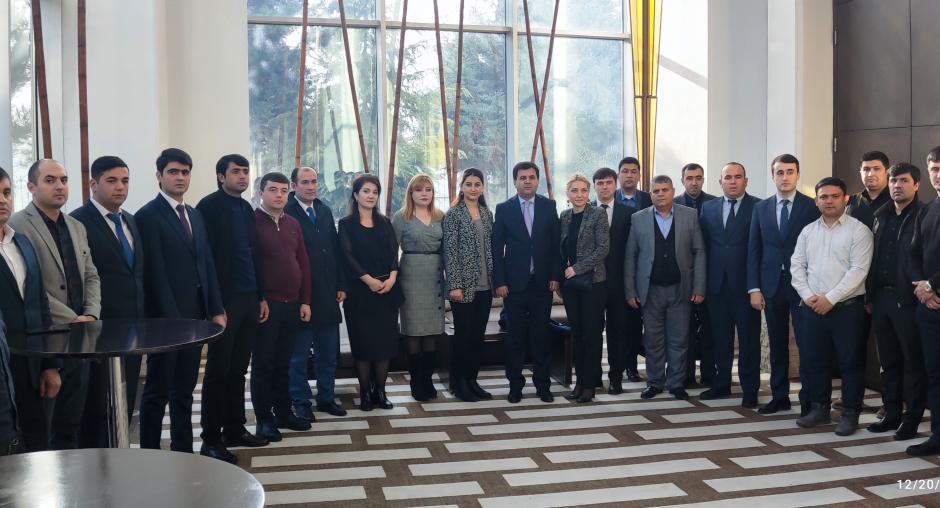OSCE facilitates inter-agency coordination on strategic trade control issues in Tajikistan

A four-day training workshop on issues related to the strategic trade control in Tajikistan, organized by the OSCE Programme Office in Dushanbe, concluded on 23 December 2021.
The training course was held as part of the OSCE’s assistance to Tajikistan’s Government in implementing UN Security Council Resolution 1540 (2004) on the non-proliferation of weapons of mass destruction and their means of delivery.
Twenty-eight representatives of Tajikistan’s Customs Service and Chemical, Biological, Radiological and Nuclear Forensics Center attended the workshop in Dushanbe.
The aim of the training course was to facilitate inter-agency coordination between the national front-line agencies on issues of the strategic trade control, based on the latest updates and changes to the national normative framework.
It was facilitated by two national and two international experts from the U.S. Export Control and Related Border Security Programme and Tajikistan’s Regional Training Centre on export control and non-proliferation of weapons of mass destruction.
Tea Jaliashvili, Deputy Head of the OSCE Programme Office in Dushanbe, mentioned that the issues of arms control and non-proliferation are high on the OSCE agenda and identified as priority areas for co-operation by the Organization’s participating States. She also mentioned that the OSCE has been supporting the Government of Tajikistan since 2016 in practical implementation of the UN Security Council Resolution 1540 in line with its Principles Governing Non-Proliferation.
Abdullo Dagiev, Head of the Department of Trade Policy and Consumer Market of Tajikistan’s Ministry of Economic Development and Trade (MEDT), highlighted the role of the OSCE in improving export control in Tajikistan and expressed his gratitude to the Programme Office for constant co-operation and support. “In its capacity as the national coordinating agency on issues of export control in Tajikistan, the Ministry pays high attention to improving inter-agency co-operation and coordination between the designated national agencies under this agenda. The topic of the today’s training course is therefore quite relevant and timely, considering the recent updates to the related sections of the national normative framework on export control,” concluded Dagiev.
Since 2020, the OSCE has been supporting MEDT in the implementation of a roadmap document on improving dual-use goods export control mechanisms in the country. During 2020-21, a number of normative framework documents have been updated in that area. The national lists of dual-use goods were also approved by the Government of Tajikistan and the country’s Commission on Export Control was established.
